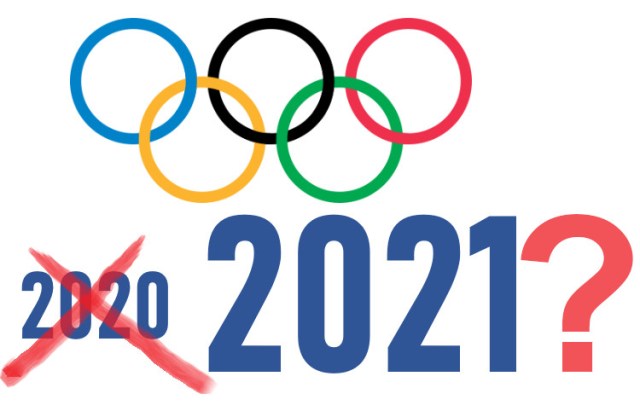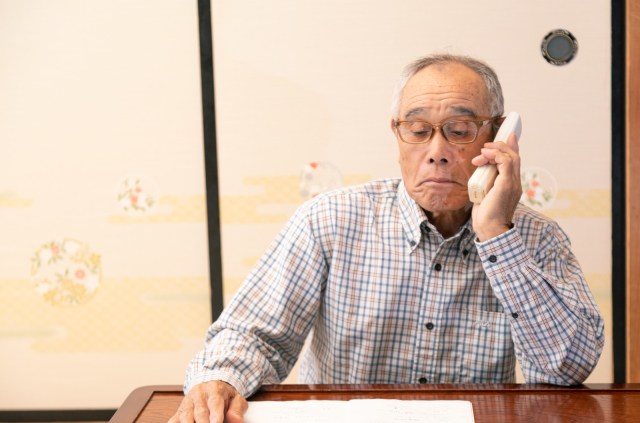
What should be done about the Tokyo Olympics?
Though several vaccines for the coronavirus have been approved and are already being distributed in some countries, we still have a long way to go until everyone will have access to it. Experts say it could be months before the vaccines are widely available, and that infection rates won’t lower until the end of 2021. So what does that mean for the 2020 Tokyo Olympics, which were rescheduled for July of next year?
Japanese public broadcaster NHK decided to ask Japanese citizens what they think. They randomly selected 2,164 adults over 18 from across the country to participate in a phone survey, which was conducted between December 11 and 14 and asked whether the Olympics should be cancelled, postponed, or held as scheduled. Only 58 percent provided answers, but the responses from those 1,249 people were pretty evenly divided.
Most responded that the Olympics shouldn’t happen next July, however, and only 27 percent said they should be held as scheduled. This is in contrast to October, when 40 percent of respondents to the same question said that the Olympics should still be held in July. This time around, more people, 32 percent, believed that they should be cancelled, and another 31 percent said that the games should be postponed to sometime later than July 2021.
In October, only 23 percent of people said the Games should be cancelled and 25 percent said that they should be postponed, so it may be that people are gradually becoming more and more unsure if it will be safe for the athletes to travel and gather by July. Regardless, it appears that Japanese citizens are fairly divided on what to do about the Olympics in light of the continuing pandemic. Japanese netizens weighed in on the debate, too, but their answers were similarly mixed:
“Is there any reason to force it to happen?”
“Considering the current coronavirus infection numbers, holding it would be impossible.”
“If they can clearly outline a plan to combat the spread, then I’d love for it to happen. But if it’s the same state of spread then as now, then I’d be very concerned.”
“Is there anyone who wants to hold it besides the mass media and the people who have vested interests?”
“I wonder if the people who think it should be cancelled have thought about the hard work and dreams the athletes have invested in the Olympics?”
“How effective will the vaccines be? We’d have to inoculate all of the athletes and the staff, at least.”
“I think if we’re gonna cancel it we have to be prepared to not have Olympic Games for about a decade…Basically if it’s impossible for Japan, it’d be impossible for France or any other country.”
“I was looking forward to the Olympics, but I don’t think it’s a simple problem to solve. I also don’t really want that many people coming to Japan. I think it should be postponed or cancelled.”
Just like the last comment said, the situation is not as simple as just deciding to cancel the Games or keep them. A lot of factors will contribute to the decision. Among other factors, cancelling the Olympics entirely means a loss of the tremendous funds that the government and many businesses have sunk into preparations, and it will be a huge disappointment to the athletes who have worked hard to make it. For some of them, this might be their last chance to compete, which would make the cancellation devastating.
Holding the Olympics in spite of the pandemic means that everyone who participates will risk exposure to the disease–or that only wealthy countries that have had access to the vaccines will be safe. Possibly, lack of access to the vaccines will even limit some countries’ ability to participate. In addition, measures to combat the spread of the disease will cost billions of yen, officials believe, and with ticket sales likely to be low or nonexistent, the return on investments is likely to be very low.
▼ The discussion likely has officials looking like this at their meetings.
Postponing the games might seem like the most ideal option, but that might mean that two Olympic games would in the same year, as the Winter Olympics are scheduled to be held in Beijing in February 2022. That’s not necessarily a bad thing, but what does that mean for the Olympic schedule? Will the next summer Olympics be held in 2026 instead of the originally planned 2024, or will there be two Olympics in two years?
There are a lot of logistics that will go into each of the options, so it’s certainly not a decision to be made lightly. An executive of the International Olympic Committee has said that the Olympics will be held in July regardless of the status of the pandemic, but whether that’s a sentiment shared by all the Olympic officials, or even whether that’s actually able to be put into practice, is another story. Regardless, the time is probably approaching when it will be necessary to make that decision–and until then, the world will be waiting with baited breath.
Source: NHK News via Hachima Kiko, Twitter/@nhk_news
Top image: Wikipedia/17jiangz1 (edited by SoraNews24)
Insert images: Pakutaso (1, 2)
● Want to hear about SoraNews24’s latest articles as soon as they’re published? Follow us on Facebook and Twitter!



 Tokyo Olympics will take place as scheduled “with or without COVID” says IOC exec
Tokyo Olympics will take place as scheduled “with or without COVID” says IOC exec Is Japan happy it hosted the Olympics, now that the Tokyo Games are over?【Survey】
Is Japan happy it hosted the Olympics, now that the Tokyo Games are over?【Survey】 Prefectural governor wants 2021 Olympics and torch relay cancelled, Tokyo not pleased
Prefectural governor wants 2021 Olympics and torch relay cancelled, Tokyo not pleased Tokyo Olympics announces new start date following coronavirus postponement
Tokyo Olympics announces new start date following coronavirus postponement IOC member says decisions on Tokyo Olympics must be made by late May due to coronavirus fears
IOC member says decisions on Tokyo Olympics must be made by late May due to coronavirus fears Major Japanese noodle chain is closing on Christmas Eve so workers can spend time with families
Major Japanese noodle chain is closing on Christmas Eve so workers can spend time with families Here are the top ten foodie factory tours for the fall throughout Japan
Here are the top ten foodie factory tours for the fall throughout Japan Five Okinawan foods that have changed our reporter’s view on local cuisine forever
Five Okinawan foods that have changed our reporter’s view on local cuisine forever Nintendo releases Metroid-shaped ice cube/cooking tray and Samus arm cannon pillow【Pics】
Nintendo releases Metroid-shaped ice cube/cooking tray and Samus arm cannon pillow【Pics】 Father of shojo manga hosts yearly one-man exhibit with new and classic artwork【Images】
Father of shojo manga hosts yearly one-man exhibit with new and classic artwork【Images】 Sheena Ringo’s latest music video leaves us spellbound by its traditional Japanese aesthetics
Sheena Ringo’s latest music video leaves us spellbound by its traditional Japanese aesthetics Make Your Own Yoshinoya Beef Bowl at Home, Even Better Than the Original 【Recipe】
Make Your Own Yoshinoya Beef Bowl at Home, Even Better Than the Original 【Recipe】 What’s in a Lawson fukubukuro lucky bag?
What’s in a Lawson fukubukuro lucky bag? Will listening to Japan’s biggest earworm song for five hours drive you insane? Let’s find out!
Will listening to Japan’s biggest earworm song for five hours drive you insane? Let’s find out! Daiso opens massive new 25,392-square foot Tokyo flagship store with its two sub-brands included
Daiso opens massive new 25,392-square foot Tokyo flagship store with its two sub-brands included Japan’s human washing machines will go on sale to general public, demos to be held in Tokyo
Japan’s human washing machines will go on sale to general public, demos to be held in Tokyo Nintendo’s Kirby now delivering orders at Kura Sushi restaurants, but not in Japan
Nintendo’s Kirby now delivering orders at Kura Sushi restaurants, but not in Japan Yoshinoya adds first-ever chain-wide ramen with new beef and pork-broth noodle hot pot meals
Yoshinoya adds first-ever chain-wide ramen with new beef and pork-broth noodle hot pot meals Japan considering raising international traveler departure tax even more than previously reported
Japan considering raising international traveler departure tax even more than previously reported Is China’s don’t-go-to-Japan warning affecting tourist crowds in Shibuya’s Don Quijote?
Is China’s don’t-go-to-Japan warning affecting tourist crowds in Shibuya’s Don Quijote? Studio Ghibli stamps lift your spirits with motivational phrases from Totoro
Studio Ghibli stamps lift your spirits with motivational phrases from Totoro Is China’s don’t-go-to-Japan warning affecting tourist crowd sizes in Nara?
Is China’s don’t-go-to-Japan warning affecting tourist crowd sizes in Nara? Japanese train company is letting fans buy its actual ticket gates for their homes
Japanese train company is letting fans buy its actual ticket gates for their homes Japanese town suing resident for being a jerk
Japanese town suing resident for being a jerk New fish discovered and named “Vanderhorstia supersaiyan” for obvious reasons
New fish discovered and named “Vanderhorstia supersaiyan” for obvious reasons Starbucks Japan unveils new Christmas goods and a rhinestone tumbler that costs 19,500 yen
Starbucks Japan unveils new Christmas goods and a rhinestone tumbler that costs 19,500 yen Real-world Nausicaa Ghibli anime glider completes its final flight in Japan【Video】
Real-world Nausicaa Ghibli anime glider completes its final flight in Japan【Video】 Brand-new Pokémon park opens in Japan with larger-than-life-size Lapras【Photos】
Brand-new Pokémon park opens in Japan with larger-than-life-size Lapras【Photos】 Unique inclined elevator in Japan leads to a town that inspired Studio Ghibli’s Spirited Away
Unique inclined elevator in Japan leads to a town that inspired Studio Ghibli’s Spirited Away Is China’s don’t-go-to-Japan warning affecting tourist crowds in Tokyo’s Asakusa neighborhood?
Is China’s don’t-go-to-Japan warning affecting tourist crowds in Tokyo’s Asakusa neighborhood? The 10 best day trips from downtown Tokyo【Survey】
The 10 best day trips from downtown Tokyo【Survey】 Naturally brown-haired Osaka student sues government for forcing her to dye her hair black
Naturally brown-haired Osaka student sues government for forcing her to dye her hair black Japanese government considering tripling departure taxes to combat overtourism
Japanese government considering tripling departure taxes to combat overtourism Survey asks foreign tourists what bothered them in Japan, more than half gave same answer
Survey asks foreign tourists what bothered them in Japan, more than half gave same answer Japan’s deadliest food claims more victims, but why do people keep eating it for New Year’s?
Japan’s deadliest food claims more victims, but why do people keep eating it for New Year’s? We deeply regret going into this tunnel on our walk in the mountains of Japan
We deeply regret going into this tunnel on our walk in the mountains of Japan Studio Ghibli releases Kodama forest spirits from Princess Mononoke to light up your home
Studio Ghibli releases Kodama forest spirits from Princess Mononoke to light up your home Major Japanese hotel chain says reservations via overseas booking sites may not be valid
Major Japanese hotel chain says reservations via overseas booking sites may not be valid Put sesame oil in your coffee? Japanese maker says it’s the best way to start your day【Taste test】
Put sesame oil in your coffee? Japanese maker says it’s the best way to start your day【Taste test】 The top 10 annoying foreign tourist behaviors on trains, as chosen by Japanese people【Survey】
The top 10 annoying foreign tourist behaviors on trains, as chosen by Japanese people【Survey】 No more using real katana for tourism activities, Japan’s National Police Agency says
No more using real katana for tourism activities, Japan’s National Police Agency says Starbucks Japan reveals new sakura drinkware collection, inspired by evening cherry blossoms
Starbucks Japan reveals new sakura drinkware collection, inspired by evening cherry blossoms Tokyo Olympics committee announces safety plans for the Games, including priority hospital beds
Tokyo Olympics committee announces safety plans for the Games, including priority hospital beds Tokyo Olympics will not allow spectators from overseas
Tokyo Olympics will not allow spectators from overseas Tokyo Olympics loses first participant as Canada withdraws from Games over coronavirus concerns
Tokyo Olympics loses first participant as Canada withdraws from Games over coronavirus concerns Japan’s PM says plenty of nurses available to work Olympics since “many are taking time off now”
Japan’s PM says plenty of nurses available to work Olympics since “many are taking time off now” IOC President is “in 100-percent agreement” with Japan’s proposal to postpone Tokyo Olympics
IOC President is “in 100-percent agreement” with Japan’s proposal to postpone Tokyo Olympics British Olympic team sends heartfelt message to Tokyo one year before the opening ceremony
British Olympic team sends heartfelt message to Tokyo one year before the opening ceremony Tokyo Olympics Village looks like an eerie ghost town
Tokyo Olympics Village looks like an eerie ghost town Japanese Prime Minister Shinzo Abe proposes postponing Tokyo Olympics for up to one year
Japanese Prime Minister Shinzo Abe proposes postponing Tokyo Olympics for up to one year Please take Tokyo Olympics condoms back to your home country and use them there, organizers say
Please take Tokyo Olympics condoms back to your home country and use them there, organizers say Tokyo Olympics Official Shop branch closes down four months before Games may or may not start
Tokyo Olympics Official Shop branch closes down four months before Games may or may not start Disagreeing with chairman Mori, comedian Atsushi Tamura withdraws from the Olympic Torch Relay
Disagreeing with chairman Mori, comedian Atsushi Tamura withdraws from the Olympic Torch Relay Tokyo Olympic Committee trains 220 “hackers” to protect games
Tokyo Olympic Committee trains 220 “hackers” to protect games Net user proposes clever changes to 2020 Tokyo Olympics logo in light of one-year delay
Net user proposes clever changes to 2020 Tokyo Olympics logo in light of one-year delay Tokyo loses 2020 Olympic marathon as IOC shifts race to another part of Japan
Tokyo loses 2020 Olympic marathon as IOC shifts race to another part of Japan Japanese Internet reacts in dismay to official Olympics Twitter quietly changing its header
Japanese Internet reacts in dismay to official Olympics Twitter quietly changing its header
Leave a Reply